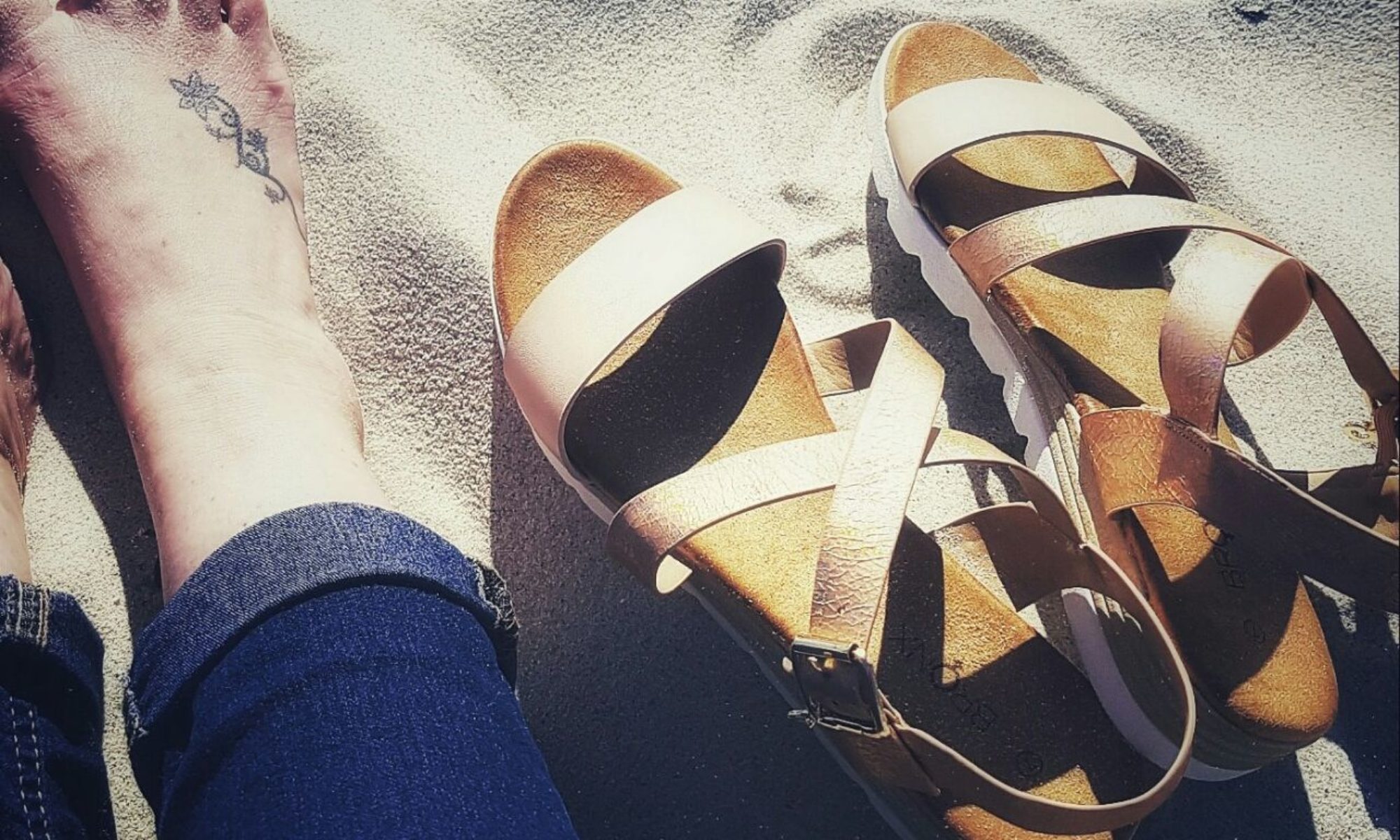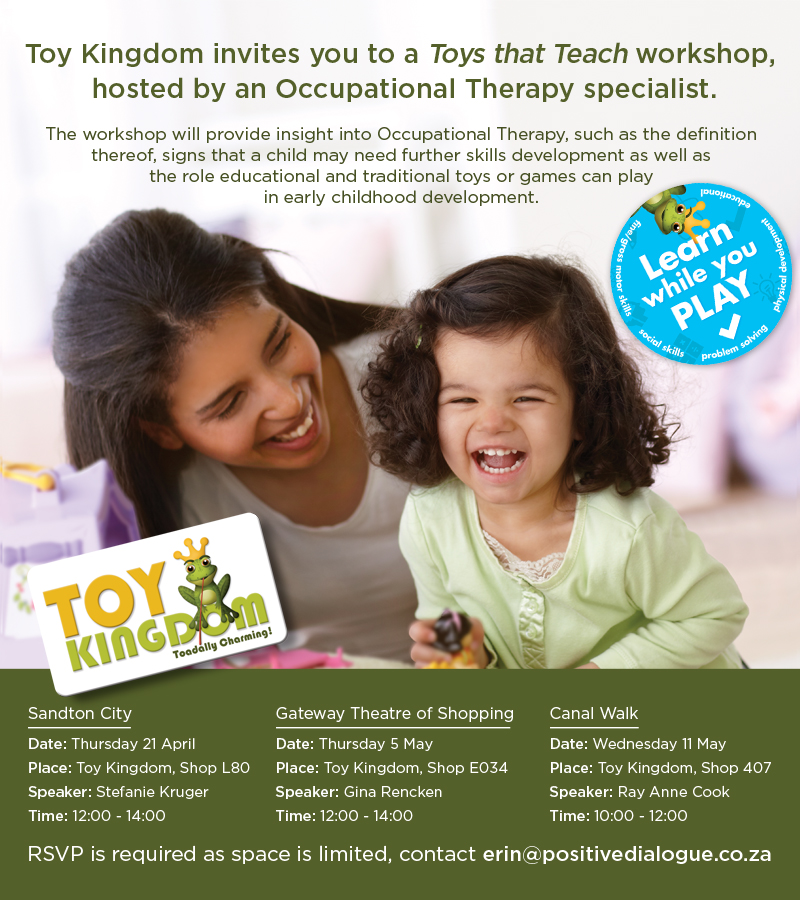Toy Kingdom is hosting an OT Workshop at their Canal Walk store on 11 May ’16 and you don’t want to miss it.
Cara is in Grade RR this year and she started Occupational Therapy a couple of weeks ago. I want to do all I can at home to further help my girl’s development, and I think that this workshop can be very helpful.
Here’s some more tips from Toy Kingdom (PS this is not a sponsored post. I just think it’s really worth sharing):
How to identify if your child needs OT
For many parents, knowing what to look out for in their children when assessing their needs for further skill development or occupational therapy can be daunting. Dana Katz advises that generally, if a child does not enjoy an age appropriate game or activity, has difficulty engaging with his peers in play, is unable to participate actively in everyday classroom tasks and is struggling to develop independence in age appropriate tasks at home, i.e. play, dressing, feeding, toileting etc., there may be a deficit or delay in skill development. She also explains that often children’s resistant, controlling or avoidant behaviour can be the first sign that they are finding something challenging.
For those who have recognised some of these signs and whose children are perhaps already in occupational therapy, there are a variety of toys and role play exercises that can further assist in building essential skills while in the home. Putting some time aside each day for children to engage with these activities and can really help with furthering a child’s development, and ultimately enrich their experience in the world around them.
The types of toys that can assist in a child’s development at home
To help in selecting the right toys for an OT child, the below provides a guideline of what sorts of toys are suitable and how they can assist in building skills:
- Toys that encourage problem solving – Lego and building blocks are a good choice for developing children’s motor and problem solving skills, as it gives them a chance to try and figure things out for themselves. It’s important to also consider toys that will help build strength in children’s hands for example play dough scissors. This strength will be necessary to take on writing amongst other daily activities.
- Things that feel ‘weird’ – toys with sticky or slimy surfaces help children to experiment with texture. This can be beneficial in ensuring children are more open to putting textured food in their mouths, and is also a great way for them to get their hands working.
- Toys that require the use of both hands – learning to use both hands well can help with colouring, cutting and writing. Winds up toys are good example or even simply tossing and catching a ball.
- Toys that encourage pretend play – fantasy and play have long been used to stimulate creativity as well as social skills in children. By pretending to do or be something different, the child is practicing both verbal and non-verbal communication, harnessing the skills to socialise and cooperate with other children and adults. Toy Kingdom’s Shopkins range is a perfect set-up for children to play with pretend food and enjoy make-believe scenarios.

